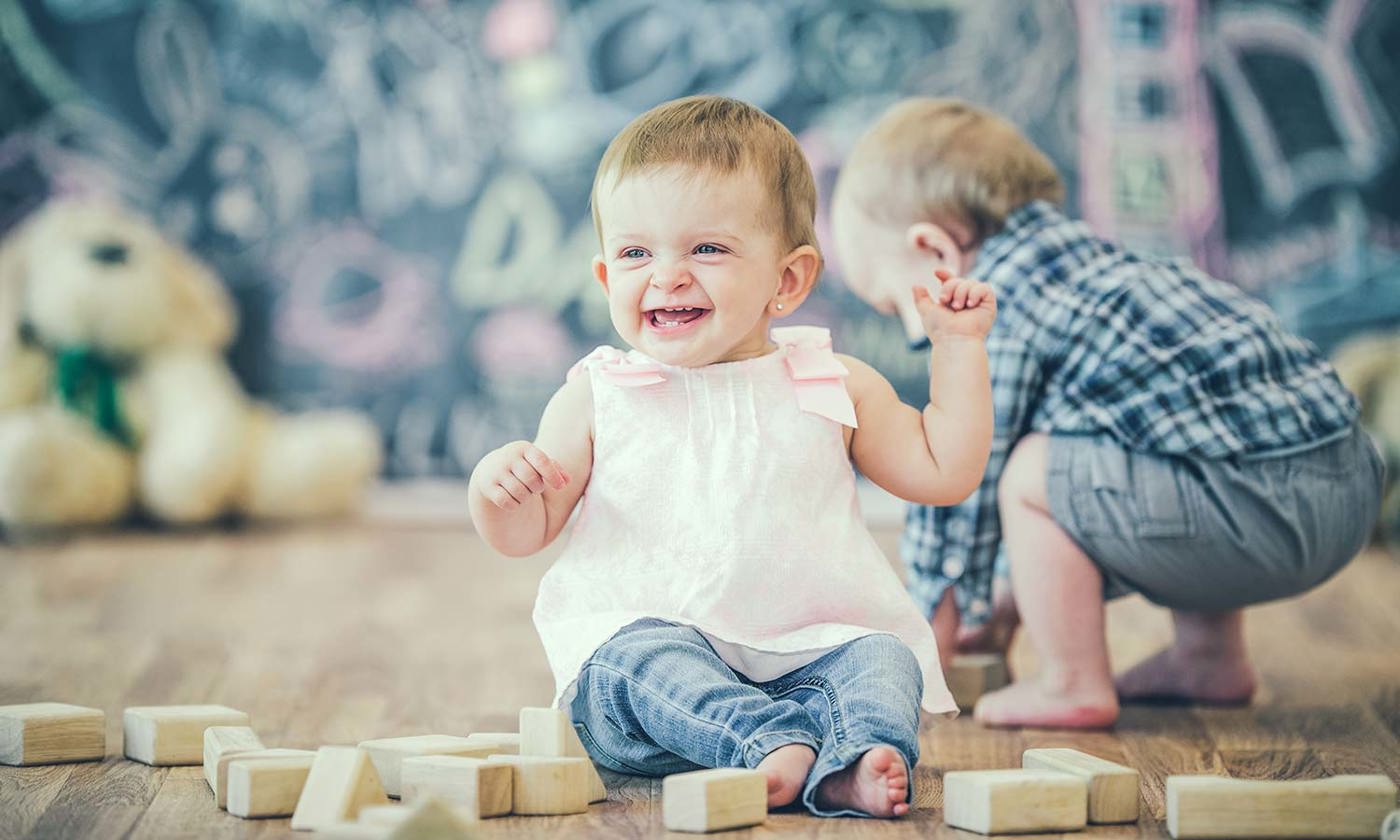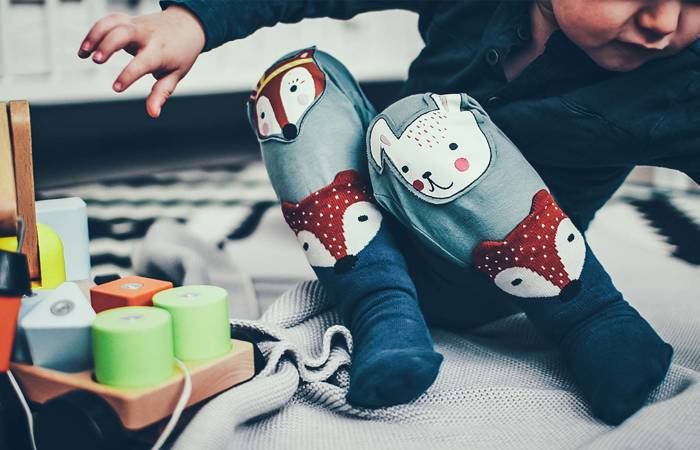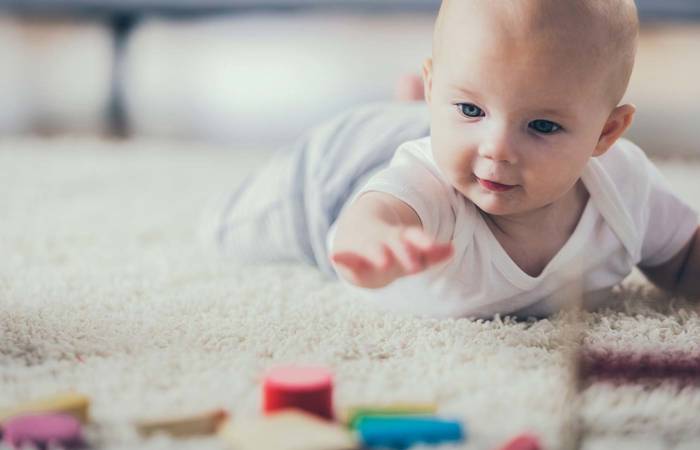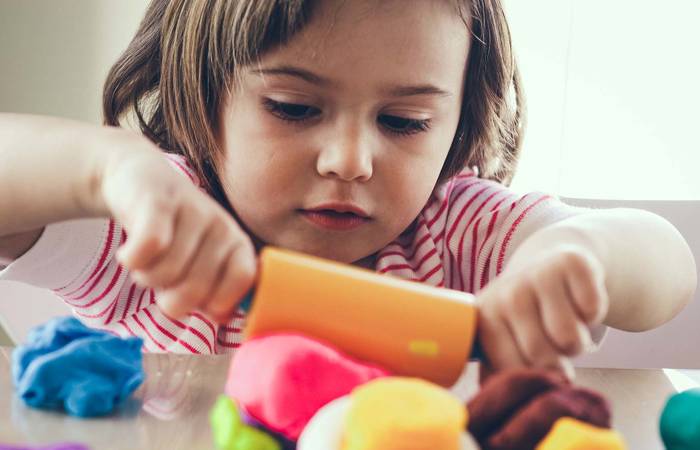Like what you see?
Sign up to receive more free parenting advice.
Thank you for subscribing to our newsletter!
Early Learning

Credit: iStock.com/FatCamera
Cheeky, fun and energetic. Any parent of a toddler will tell you that little people are non-stop balls of energy always seeking out the next adventure.
A toddler’s world is about making new connections, mastering new skills and doing it all while having as much fun as possible, say the early childhood experts.
According to Goodstart educator Emily McCormack, toddlers have a natural curiosity and satisfying that curiosity lays down important foundational skills that they’ll need to build on as they enter kindergarten or preschool and get ready for primary school.
“And there is no better way to capitalise on a toddlers growing interest than through play-based learning,” she says.
“Play-based learning draws on and supports a child’s natural desire to explore and engage in environments and experiences that are relevant to their interests and developing skills.
“Toddlers use play-based learning to foster the development of a range of skills including their emotional competencies, in particular they develop empathy, awareness and problem solving skills.
“It also supports their development in a broader range of areas like language and physical development.”
We know play is very important to a child’s development. We have compelling evidence of the importance of play to children’s development.Professor Ann Farrell
The play-based learning approach is led by the child but supported by parents, teachers and educators who recognise ‘teachable moments’ while the child is playing, or by carefully planning play experiences that open up opportunities for learning.
When children engage in play, they are more motivated to learn and develop positive feelings towards learning. By drawing on their natural desires, play-based learning is perfect for toddlers, says Emily.
As an experienced educator, Emily was recently able to identify a prime opportunity for play-based learning with a toddler in her room with emerging language skills, when he demonstrated an interest in cubby houses.
“We supported his interest in cubbies by introducing the materials to construct a larger cubby so that other children were able to be involved in the experience,” she said.
This simple and common play experience packs in a lot of learning, which when we take a step back and observe really shows us the rich value of play-based learning.
Not only was the child having fun and therefore more likely to engage in a similar experience again, there was also several skills and competencies being developed like language skills and social skills while negotiating with the other children, and problem solving skills both when building the cubby house and when deciding how to take turns to play in it.
Within an early learning context, Queensland University of Technology Head of the School of Early Childhood and Inclusive Education Professor Ann Farrell says play based learning involves skilled educators to optimise the learning that is happening through play.
“Play based learning is paramount and those (early learning centres) that espouse to have a play based learning approach need to champion play because it is a definite advantage for children,” she says
“Through play, children experience, problem solve, communicate and make sense of their world.
“We know play is very important to a child’s development. We have compelling evidence of the importance of play to children’s development”.
“Cognitive, physical, social and emotional skills and taking initiative are all skills developed when a child learns by doing, trial and error and experimentation,” she says.
With evidence to support the fact that babies in the womb are communicating and interacting with the world around us, it is no wonder that newborns, toddlers and young children crave opportunities to learn and test new skills, Professor Farrell says.
“Play starts from the moment the child is born (even before) and we do see it in newborns she says.
“Newborns initiate conversations, they communicate and learn how to exert influence over their caregivers, so we know there is no starting age, it is always happening.
“It is an integral part of human relationships, newborns interact with their caregiver for food or a nappy change. They initiate the exchange and the adult responds.
“Learning through play is not necessarily formal but is part of everyday life and parents should be encouraged to respond to the child,” she says.
“Be mindful that learning through play is set within the cultural contexts and different forms of play may be valued by different cultures. “
It’s easy to extend your toddler’s learning opportunities at home. You’re really only limited by your own imagination.
If you’re both having fun and are engaged in what you’re doing, you’re probably doing it right!
Try some of these activities at home:
- Start a dress up box or cupboard. Dramatic play is a fantastic form of play-based learning.
- Have ‘loose parts’ available (appropriate for their age) such as stones, wood or cardboard boxes. These items encourage imagination and creativity without the limitations of structured items like plastic toys.
- Get down to your child’s level when you play with them.
- Ask open ended questions such as “can you tell me what it does?” when your child has made something creative.
- Create a flexible routine which allows time for play.
- Use art materials like playdoh, paint and felts which allow for flexible play.
- Use common household items like pots and pans, clothing, sheets or furniture.
- Turn off screens and devices to reduce background noise and
Splish, Splash, Pour
Grab two cups before bath time. Give your child a cup and pour water from your cup into his/hers. Then ask your child to pour the water from his/hers back into yours. Count the number of times out loud and see how many times you can go back and forth!
Supporting children as they explore and discover will help them become learners for life. Counting out loud also helps your child build a stronger sense of numbers.
See all tips
Get Advice
Real parents. Real problems. We’re here with a group of leading early learning and parenting professionals to answer your questions.






